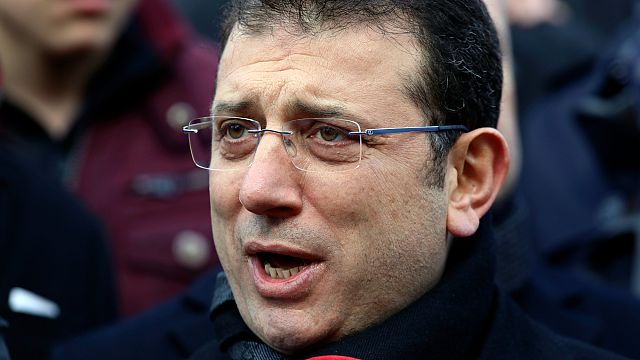Republicans in Congress Shift to Backing Ukraine, Matching Trump’s Reversal


Less than two years ago, House Republicans were so livid about the idea of continuing to aid Ukraine in its fight against Russian aggression that they deposed their own speaker, Kevin McCarthy, in part to protest what they said was a “secret side deal” he had made to do so.
Months later, Speaker Mike Johnson risked his own job to push through a funding package for Ukraine, with the majority of his members voting “no.”
But now, more than three years into the war, many Republicans in Congress who have railed consistently against sending more money and weapons to Ukraine and clamored to end American involvement in the war are rushing to shift their stance, following the lead of President Trump.
It is the latest evidence that Mr. Trump, whose “America First” foreign policy approach has upended decades of Republican orthodoxy favoring muscular U.S. intervention in conflicts around the world, holds an iron grip on his party. And now that the president, who once disdained American aid to Ukraine, has pivoted and announced a new plan to speed weapons to the war-torn country, some Republicans are contorting themselves to stay aligned with him.
That has involved relative silence from some previously vocal opponents of supporting Ukraine and striking public reversals from some of Mr. Trump’s closest allies, many of whom spent considerable time on Capitol Hill arguing against a policy they once called reckless but now argue is brilliant diplomacy from a master strategist.
Representative Derrick Van Orden, Republican of Wisconsin, last spring savaged the Biden administration for failing to have a plan for further aid to Ukraine, proclaiming, “We must stop entering into endless wars.” On Monday, he endorsed Mr. Trump’s announcement of more help.
“I explicitly trust Donald Trump,” he said in an interview. “I call him the peacemaker in chief. He knows what he’s doing, and I trust him.”
Though Mr. Trump was quick to emphasize that the United States would not be paying up front for any additional weapons, he offered no detailed plan for how his plan would bring about an end to the war.
Still, Mr. Van Orden professed no qualms: “He has my 100-percent, absolute, unequivocal support,” he said of Mr. Trump.
As a member of the Freedom Caucus, Representative Troy Nehls, Republican of Texas, is part of the hard-right faction in the House that argued for withholding support for Ukraine over concerns about funding for security at the U.S.-Mexico border. Now, he supports helping Ukraine, but insists he has not altered his stance, noting that under Mr. Trump’s proposal, NATO nations would pay for American weapons.
“It’s not a real change in position. Donald is the only guy that can stop that,” he said in an interview, referring to Russian aggression. “But it’s going to require Vladimir Putin to understand what the boss means by ‘Let’s end this thing in 50 days’.” He appeared to be alluding to Mr. Trump’s threat to impose tariffs on Russia if a peace deal is not reached in short order.
Representative Warren Davidson, Republican of Ohio, a staunch opponent of aiding Ukraine in the past, told CNN that Mr. Trump’s plan for doing so was the right approach.
“The president really gets it right in saying, ‘Hey, we’ll sell NATO countries these weapons and if they want to pay for them, they can buy them,’” Mr. Davidson told CNN, adding: “This is not our war.”
The pivots have been jarring at times, particularly for those who made opposition to supporting Ukraine central to their political brand.
As a senator from Ohio and a chief disciple of the MAGA movement on Capitol Hill, Vice President JD Vance was one of the most outspoken critics of aiding Ukraine. In an essay for The New York Times, he argued last spring that the war was unwinnable and that the United States could not supply what Ukraine needed to bring about its end.
This week, he stood silently beside Mr. Trump in the Oval Office as the president announced the plans that would see additional American weapons on the front lines of the conflict.
Senator Rick Scott, a Florida Republican who once vehemently opposed U.S. aid to Ukraine, also spoke favorably about Mr. Trump’s plan. “He’s going to do everything he can to get peace, and I hope Putin takes him seriously,” Mr. Scott said of the plan, adding: “I think President Trump clearly doesn’t want to be in wars. He hates war.”
His stance marked a notable departure from just a over a year ago, when he held up the Senate floor for nearly two hours denouncing a bipartisan military aid package for Ukraine. “Senate Democrats and a minority of Senate Republicans chose to prioritize the national security of Ukraine over the national security of the United States,” he said at the time. “Every American should be disgusted with what is happening in Washington.”
Mr. Trump has tried to make a clean break with former President Joseph R. Biden Jr. by asserting that new weapons for Ukraine are not meant to bring about victory by force, but to sustain the military there for long enough to bring about a negotiated resolution to the conflict.
Still, some Republicans argue that the voters who delivered Mr. Trump a second term in the White House and granted unified control to Republicans in Washington are not on board with his change of heart on Ukraine.
“The American people want us to fix problems at home, not do the bidding of neocons and warhawks,” Representative Eli Crane, Republican of Arizona, said in a social media post on Tuesday responding to Mr. Trump’s new Ukraine plan.
Representative Marjorie Taylor Greene, the Republican of Georgia who sought unsuccessfully to oust Mr. Johnson last year for pushing through the Ukraine aid package, suggested that the president’s plan was a betrayal of the voters who had elected Republicans in part based on their promise to end U.S. involvement in foreign wars.
“No one’s walking around thinking about Ukraine. No one’s walking around thinking about Russia. They’re just not,” she said in an interview on Monday. “They walk around and all they think about is their bills, their problems and the road that may look like crap in front of their house — or they can’t buy a house.”
Though she says her tune has not changed, it is now discordant with many in her party who have shifted around her as they seek to stay aligned with Mr. Trump. The situation has left Ms. Greene perplexed as to why she is facing criticism for adhering to views she once thought were broadly shared by those in her party.
“It’s been wrong that I’ve had to defend myself. And I haven’t pulled my support from the president,” she said. “This is what we campaigned on. This is what I promised also to my district. This is what everybody voted for. And I believe we have to maintain the course.”
What's Your Reaction?
 Like
0
Like
0
 Dislike
0
Dislike
0
 Love
0
Love
0
 Funny
0
Funny
0
 Angry
0
Angry
0
 Sad
0
Sad
0
 Wow
0
Wow
0






































